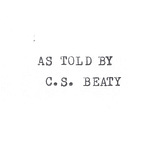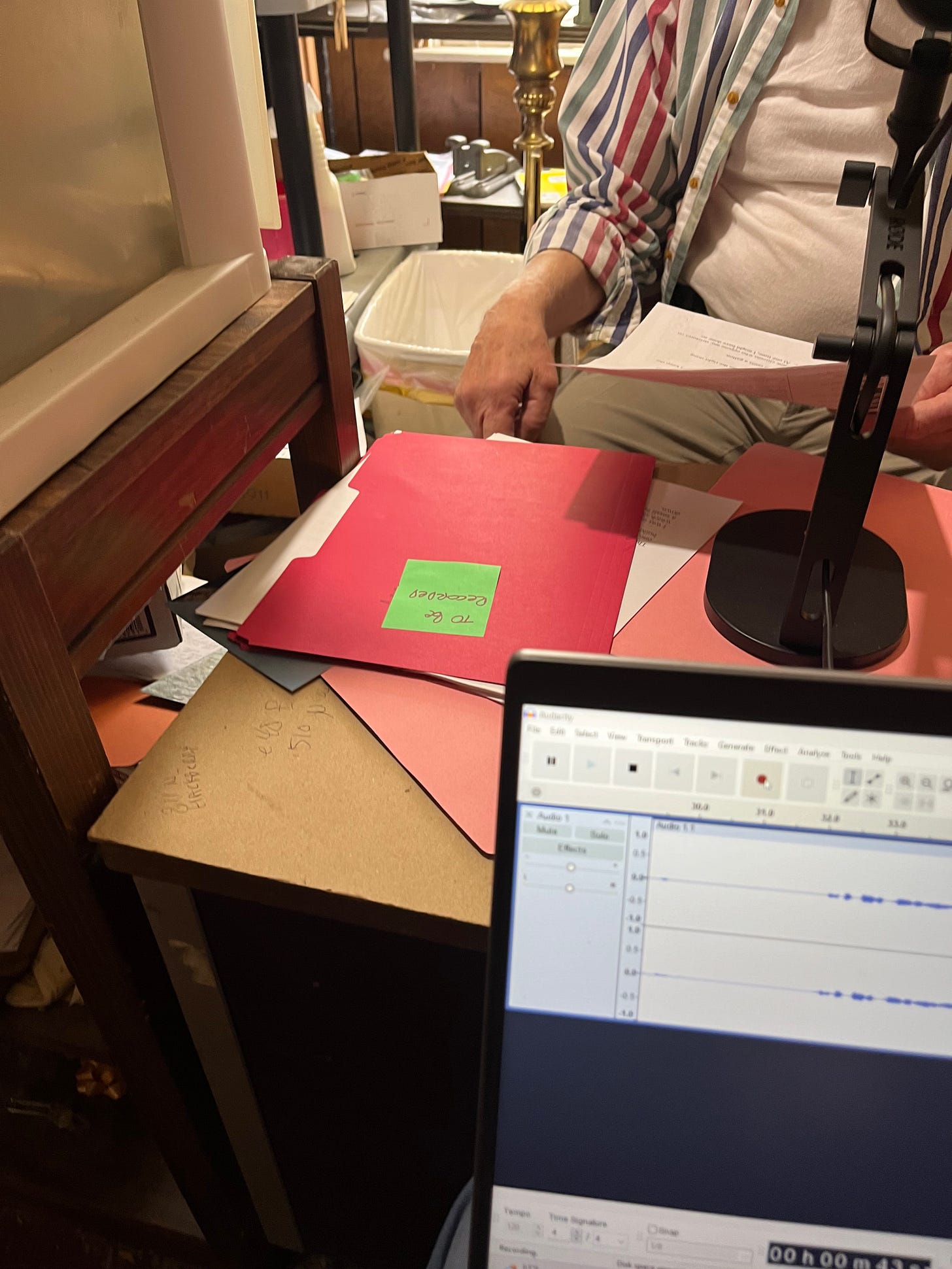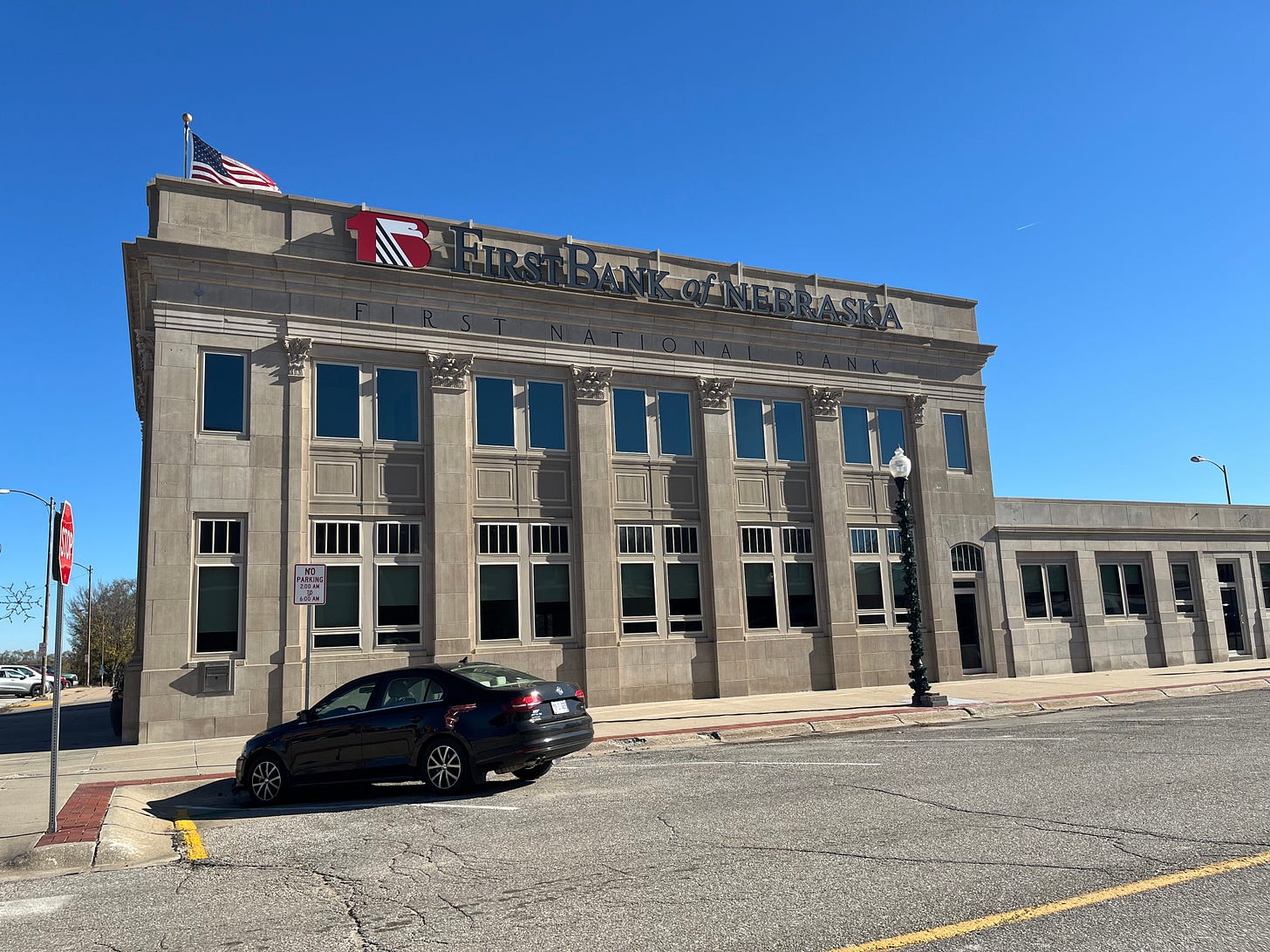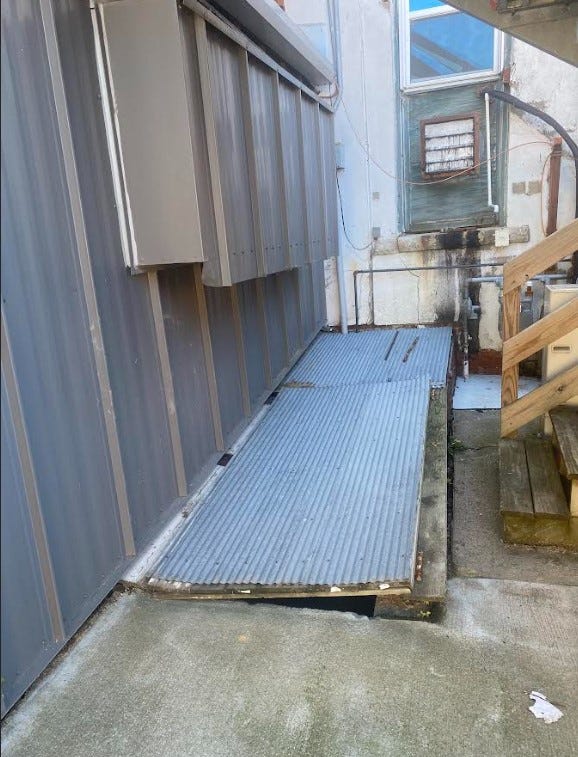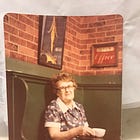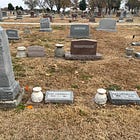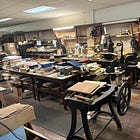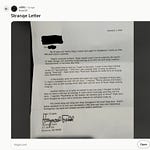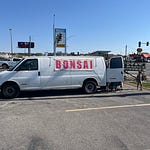By Bob Copperstone
I was 9 years old in 1948 when my parents, Hank and Irma Copperstone, took half-ownership of the Wigwam Café in downtown Wahoo with Clare (Muzzy) and Dorothy (Dodo) Miller.
I spent a great deal of the remainder of my childhood exploring the restaurant’s main floor and basement.
Believe me; I missed neither nook nor cranny of that fascinating building.
The Independent Order of Odd Fellows, a secret international social and charitable fraternity, owned the building and occupied the second floor, renting out the first floor and basement to the Wigwam.
So, I never got the chance to go into the top floor, which has since been turned into an apartment by the building’s present owners, Clayton and Sylvia Wade.
Silver Dollar Treasure-Trove
But to this small boy, the Wigwam’s basement held intrigue and secrets ripe for exploring.
Over the years, the basement was a secret trove of buried paper money and silver coins.
From time to time there had been withdrawals by my dad from his “soil bank.”
After all, he was the soil bank’s president and Chief Financial Officer, and liked to have a ready stash of cash to spend on family vacations and fishing trips to Minnesota.
He would convert the silver dollars to paper bills for the trips, but usually kept some of the seldom-seen coins for their shock value when he was paying at cash registers outside the Wigwam.
Hank took to burying money in the cafe’s basement, probably in part because his generation had experienced the “Dirty Thirties” era of the Great Depression, when banks failed and wiped our countless people’s life savings.
Of course as a businessman, Hank had an active account at the First National Bank of Wahoo. But he still kept stashes hidden in the basement.
Operating kind of like the real banks, his “First Wigwam Bank’s Christmas Club” served him well.
When customers’ silver dollars were spent upstairs, Dad would toss them into a box under the cash register, and then put them into huge, commercial-sized glass mayonnaise jars, which he buried in the basement when no one was looking.
Only half of the basement floor was concrete or tile. The storage and laundry area in the back half consisted of gravel over bare soil, and Dad would bury the jars to just a couple of inches below the surface and then cover them with gravel.
Muzzy Miller Turns Golddigger
I came home from California for Dad’s funeral in 1966, and one night I was at the Wigwam after closing time talking to Muzzy, who had been keeping the café’s books for Mom.
I was telling Muzzy that as a teen-ager, I had talked Dad into showing me the silver dollar stash so the contents wouldn’t be lost after he was gone.
Muzzy was mildly interested, but skeptical about finding anything after so many years. But he followed me and my potato fork spade down the creaky basement stairs and back into the windowless, dimly lit laundry area’s graveled-dirt surface.
I stabbed fruitlessly at the ground for quite a few minutes, but finally heard a promising metallic “clunk.”
I dropped to my knees and began clawing the gravel to reveal the jar’s metal lid. I dug further so I could lift the glittering jar chock-full of pure silver into the weak gleam of the single dim lightbulb.
Muzzy’s jaw dropped and his eyes grew large. Grabbing the spade, he furiously began prospecting for treasure. We took turns jabbing at the gravel and found a second jar, but it was empty. The silver mine had played out.
Cold, Hard Cash, In Brick Form
At one point, Dad’s makeshift “First Subterranean Wigwam Bank” experienced an intriguing chapter when he and his sister, Anne Cullen, decided to make a deposit of several thousand dollars in cash into its secret earthen vault.
I recall that my beloved Auntie Annie was a fastidious sort of housekeeper who favored plastic bags and bread wrappers for storage in freezers and most everywhere else. So the greenbacks were packed solidly within a clear plastic bag for the interment, to await a rainy day.
-- Now, cut much later to that rainy day:
What emerged from its basement grave was a damp, solid green brick of money.
Buried plastic bags, it seems, prove to be ideal vessels for drawing in and retaining earth’s moisture.
The initial panic was eased after they sent the moist, green chunk of cash to the federal banking facility in Kansas City, where experts peeled back layers of the block to determine its cash value. Dad and Anne believed that most, or maybe all, of the amount was recovered.
The ‘Safety Deposit Freezer Box’
Like the real banks, the Wigwam’s makeshift facility had its own night deposit service in the form of an abandoned six-hole ice cream freezer that had been shoved into a dark basement corner and almost hidden by piles of boxes and crates.
Each night, after the “checking out” ritual of balancing the books, Dad would head for the basement and stash the cash overnight in one of the heavy-lidded ice cream tubs within the old freezer
.
Over the years, various treasured objects other than money found shelter deep in the old freezer’s compartments or hidden somewhere else in the basement. Not I, nor probably anyone else, knew exactly what was hidden where. Dad must have kept “deposit slips” in his head.
Naturally, Dad’s real bank offered actual metal safety deposit boxes for such safe-keeping, but the Wigwam basement’s own freezer-fortress served that purpose well. It was handier, too.
In freezers and holes in the ground, Hank trusted.
Burglars Make a Bank Withdrawal
After closing up each night, Dad would always leave open the cash register drawer containing $50, so burglars wouldn’t take a crowbar to it, like they had done one infamous night.
A burglar had lifted the unlocked horizontal outside door in the back alley, stepped down the cement stairway and walked right in through an unlocked heavy wooden door at the bottom.
That door had never in the building’s history had a lock and key, but only a primitive bar on the inside. For decades, that long, four-by-eight wooden plank kept intruders out.
But it was discovered that one of our waitresses had sneaked downstairs earlier that day and removed the bar.
Police found that the burglar was the waitresses’ boyfriend, who used some of the loot to buy her an engagement ring.
The waitress lost her job, of course. But later she, a rather simple type of young girl, had the innocent-like temerity to return to the Wigwam one day to show off the engagement ring to the other waitresses. My Mom, Irma, came storming out of the kitchen to banish her from the Wigwam for good.
(To be continued)


